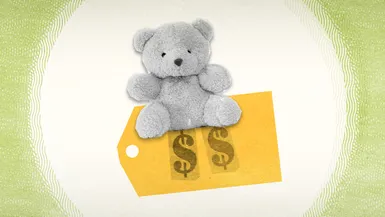Politics and economics are often seen as separate worlds — one dealing with power, the other with money. Yet, in reality, they are deeply intertwined. The political economy examines how governments, laws, and political systems influence economic growth, wealth distribution, and public welfare. It’s the study of how political decisions shape markets and how economic realities influence politics.
In the modern world, understanding political economy is essential for anyone who wants to make sense of government policies, global trade, and financial stability.

🏛️ What Is Political Economy?
Political economy is the study of how political forces affect economic policies and outcomes — and vice versa. It explores questions like:
- Why do some governments adopt free-market systems while others prefer state control?
- How do political ideologies influence taxation, welfare, and trade policies?
- What is the role of power, institutions, and public opinion in shaping economic outcomes?
In simpler terms, political economy looks at how power and money interact to shape society.
Historically, thinkers like Adam Smith, Karl Marx, and John Maynard Keynes laid the foundations of this field — each offering unique insights into how economic systems reflect political ideologies and power structures.
⚖️ The Relationship Between Government and Economy
At the heart of political economy lies the balance between state control and market freedom. Governments influence the economy through policies such as:
- Taxation and public spending: Who pays taxes, how much, and where those funds go — all are political choices that affect economic equality.
- Regulations: Laws about trade, labor, and the environment shape how businesses operate.
- Monetary and fiscal policies: Central banks and finance ministries control interest rates, inflation, and national budgets.
For instance, during economic crises, governments may choose between austerity (cutting spending) or stimulus (increasing spending). Each choice reflects a political ideology about how best to manage national wealth.

🌍 Globalization and the New Political Economy
In today’s interconnected world, no country’s economy functions in isolation. Globalization has blurred national boundaries, making the world’s markets interdependent.
Trade agreements, multinational corporations, and global institutions like the IMF (International Monetary Fund) and World Bank now play major roles in shaping national economies. However, globalization also brings challenges:
- Rising inequality between nations
- Dependence on global supply chains
- Exploitation of labor and resources
- Political backlash from populist movements
The modern political economy must therefore address not only national issues but also global justice, environmental sustainability, and fair trade.
🏦 Political Economy in Practice
Political economy is visible in every government decision — from fuel prices to welfare programs.
For example:
- When a government raises taxes on luxury goods, it’s applying economic policy to achieve social equity.
- When it subsidizes local industries, it’s balancing economic competitiveness with political stability.
- When it negotiates trade deals, it’s blending diplomacy with economic strategy.
Thus, political economy is not just an academic concept — it’s the practical foundation of governance. Every political party and government agenda reflects a certain economic philosophy, whether it’s capitalism, socialism, or mixed economies.
📊 Political Economy and Inequality
Economic inequality often translates into political inequality. Wealthy individuals or corporations may influence political decisions through lobbying, campaign funding, or media control. This creates a cycle where economic power reinforces political power — and vice versa.
Addressing this imbalance requires policies that promote inclusive growth, such as:
- Progressive taxation
- Free education and healthcare
- Job creation and skill development
- Anti-corruption reforms
A healthy political economy aims to ensure that prosperity benefits all citizens, not just a privileged few.
🔋 Political Economy and Development
In developing nations, political economy plays a key role in determining how quickly societies progress. Effective governance, stable institutions, and transparent policies can attract investment and spur innovation.
However, corruption, weak institutions, and political instability can stall economic growth. That’s why economists emphasize good governance — where policies are designed for long-term development, not short-term political gain.
Countries like Singapore, South Korea, and the Nordic nations are examples of how sound political economy strategies can transform societies from poverty to prosperity.
🌱 The Political Economy of Sustainability
In the 21st century, environmental challenges have become a central concern. The political economy of sustainability explores how governments can balance economic growth with environmental protection.
Questions like these define the new global debate:
- Should industries be taxed for pollution?
- How can renewable energy be made affordable?
- What role should international cooperation play in fighting climate change?
Sustainable political economy demands green policies, technological innovation, and global collaboration to ensure that economic progress doesn’t destroy the planet.

🔮 The Future of Political Economy
As technology reshapes industries and artificial intelligence redefines labor markets, the next phase of political economy will focus on automation, data, and digital governance.
Governments will need to answer new questions:
- How to tax digital corporations fairly?
- How to provide jobs in an AI-driven world?
- How to regulate cryptocurrencies and global digital trade?
The answers will determine not just the future of economies but also the balance of political power worldwide.
🕊️ Conclusion
The political economy is the lens through which we can understand how power, policy, and wealth interact. It reveals that every economic decision is also a political one — influenced by values, ideologies, and the pursuit of stability.
A fair and sustainable political economy is one that balances growth with justice, innovation with inclusion, and freedom with responsibility.
In the end, the prosperity of a nation depends not only on its economic strength but also on the wisdom of its politics.
